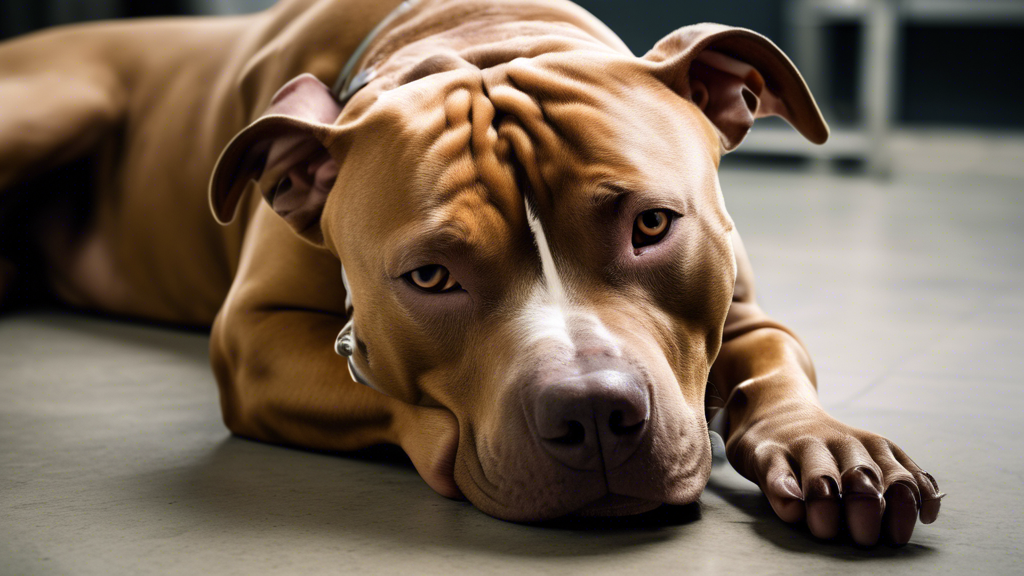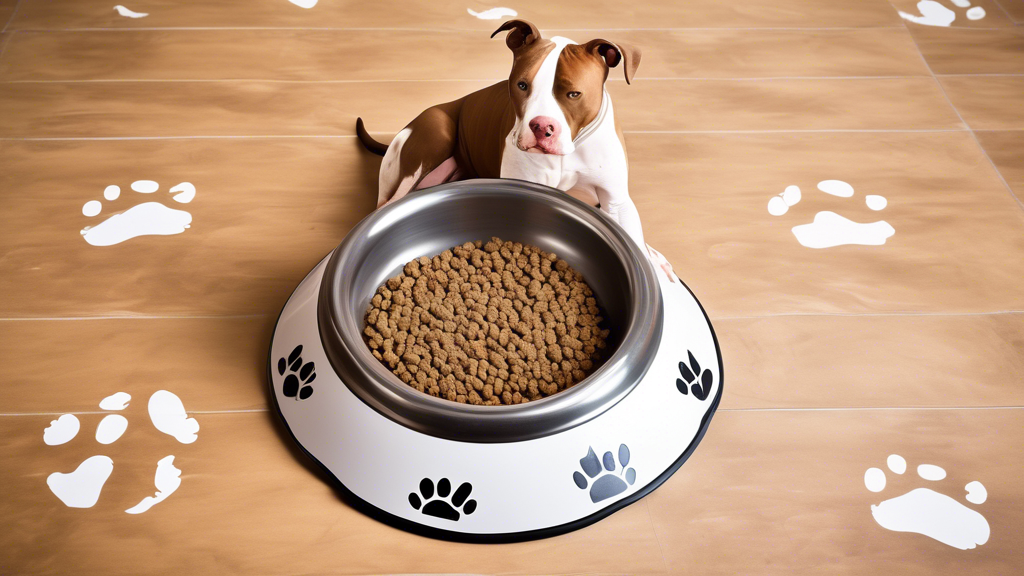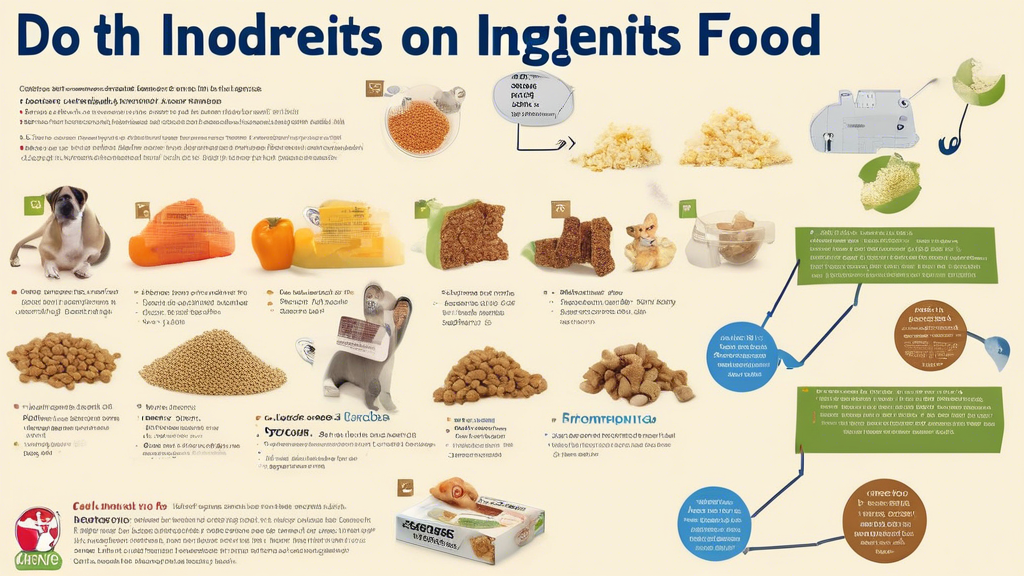**SEO-Optimized Introduction for Understanding Pitbull Nutrition: Feeding Tips and Tricks**
**Pitbulls: A Breed with Specific Nutritional Needs**
Pitbulls are captivating canines known for their loyalty, companionship, and athleticism. To maintain their well-being and optimal health, it is imperative to provide them with a nutritious diet tailored to their unique requirements. This article will delve into the intricacies of Pitbull nutrition, offering comprehensive feeding tips and tricks to ensure the vitality of these cherished companions.
**Key Nutritional Considerations:**
– Nutritional requirements vary based on age, weight, and activity level.
– Selecting premium kibble and wet food options is crucial for balanced nutrition.
– Fresh water and regular feeding schedules are vital for hydration and digestive health.
**Addressing Specific Dietary Concerns:**
– Pitbulls can be prone to allergies and digestive sensitivities.
– Managing allergies and digestive issues requires careful observation and dietary modifications.
– Supplements and treats can support Pitbull health when administered responsibly.
By adhering to the principles outlined in this article, you can provide your Pitbull with a nutritious diet that promotes their overall well-being, ensuring they live long, healthy, and fulfilling lives. Embrace the vital role of nutrition in fostering a bond of health and happiness with your beloved Pitbull.
Feeding Pitbulls for Optimal Health
Nutritional Requirements Based on Age, Weight, and Activity Level
* Puppies: Require higher energy density and protein for growth and development.
* Adults: Maintain bodyweight and support muscle mass.
* Seniors: May have reduced appetite and digestive changes, requiring adjustments in calorie intake.
* Active Pitbulls: Need more calories and increased protein to support high energy levels.
Choosing High-Quality Kibble and Wet Food Options
* Kibble: Look for kibble with high-quality protein sources (e.g., chicken, fish, lamb), whole grains, and minimal fillers.
* Wet Food: Provides hydration and can be beneficial for dogs with dental issues or who have difficulty chewing. Choose options with high protein content and limited artificial ingredients.
Importance of Fresh Water and Regular Feeding Schedules
* Water: Always provide access to clean, fresh water.
* Feeding Schedules: Establish regular feeding times to promote healthy digestion and prevent overeating. Space meals 8-12 hours apart.
Common Allergies and Sensitivities in Pitbulls
* Beef, chicken, and wheat are common allergens.
* Symptoms: Itching, ear infections, skin rashes, vomiting, and diarrhea.
* If you suspect an allergy, conduct an elimination diet with your veterinarian.
Tips for Managing Allergies and Digestive Issues
* Use hypoallergenic dog food containing novel protein sources (e.g., venison, rabbit, fish).
* Avoid foods with potential allergens or known triggers.
* Limit treats and table scraps.
* Consider probiotics or digestive enzymes to support gut health.
Supplements and Treats That Support Pitbull Health
* Glucosamine and Chondroitin: For joint support and mobility, especially in older dogs.
* Fatty Acids: Omega-3 and -6 fatty acids promote skin and coat health.
* Treats: Use healthy treats as training rewards or enrichment, such as dried liver, apple slices, or homemade frozen treats.
The #1 Free Source for Pitbull & Bully Pedigrees!

Specific Dietary Considerations for Pitbulls: Addressing Allergies and Digestive Issues
Pitbulls are notorious for having sensitive digestive systems and prone to certain allergies. Understanding these conditions is crucial for maintaining their optimal health.
Common Allergies and Sensitivities in Pitbulls
Pitbulls are commonly allergic to:
* Beef: One of the most prevalent allergens, causing symptoms like vomiting, diarrhea, and skin irritation.
* Chicken: Another common allergen, especially in puppies.
* Dairy products: Can lead to digestive issues, such as bloating and gas.
* Grains: Some Pitbulls are intolerant to certain grains, like wheat, corn, and soy.
Tips for Managing Allergies and Digestive Issues
* Elimination Diet: Determine the specific allergen by eliminating one food source at a time.
* Limited Ingredient Diet: Stick to a diet containing only a few high-quality ingredients, making it easier to identify any potential triggers.
* Hydrolyzed Protein: This type of food breaks down proteins into smaller molecules, making them less likely to cause an allergic reaction.
* Novel Protein: Introduce protein sources that your Pitbull has never had before, minimizing the risk of allergy.
Supplements and Treats that Support Pitbull Health
In addition to a balanced diet, specific supplements and treats can enhance Pitbull well-being:
* Probiotics: Support digestive health and reduce the risk of diarrhea.
* Glucosamine and Chondroitin: Maintain joint health and mobility.
* Omega-3 Fatty Acids: Provide anti-inflammatory benefits and support skin and coat health.
* High-quality treats: Occasional treats made with natural ingredients, such as dried sweet potato or apple, can promote dental health and provide enrichment.
Remember that dietary needs vary among individual dogs. Always consult with your veterinarian before making significant changes to your Pitbull’s diet and consider their age, weight, and activity level to ensure they receive the optimal nutrition for their unique needs.
**Conclusion**
Understanding the nutritional needs of Pitbulls is crucial for their overall health and well-being. By following the feeding tips and tricks outlined in this article, owners can ensure that their Pitbulls receive a balanced and nutritious diet.
Choosing high-quality food options that meet their specific age, weight, and activity level requirements is essential. Additionally, paying attention to common allergies and sensitivities in Pitbulls and managing them appropriately can prevent digestive issues and ensure optimal health.
Supplements and treats can be beneficial in supporting Pitbull health, but it is important to consult with a veterinarian before introducing them into their diet. By adhering to regular feeding schedules, providing fresh water, and considering their unique dietary needs, owners can support the longevity, vitality, and overall well-being of their beloved Pitbulls.













Leave A Comment